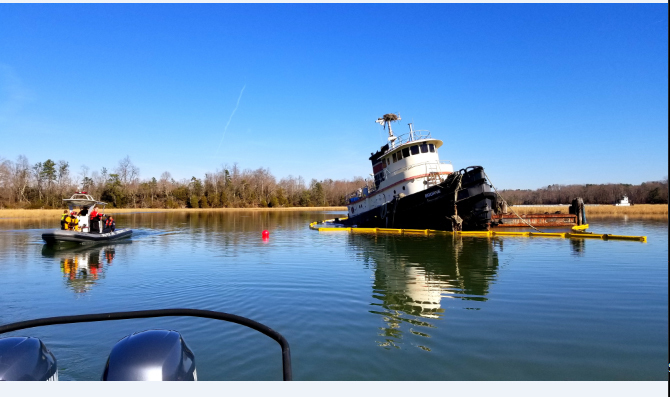In a report released last month, the Government Accountability Office (GAO) concluded that improved analysis of vessel response plan (VRP) use could help mitigate marine pollution risk.
The Coast Guard processes for reviewing and approving VRPs assess whether they comply with regulatory requirements and have contracts in place for response resource providers, such as oil spill removal, and salvage and marine firefighting services. GAO and industry stakeholders identified risks in the Coast Guard’s processes such as the:
• Relatively small number (71 of more than 3,000 VRPs) of verifications conducted of salvage and marine firefighting response capabilities;
• Limited availability of reliable data on the location of oil spill and marine firefighting response capabilities;
• Limited availability of certain resource providers to respond to an incident.
For example, the GAO said, industry stakeholders stated that some subcontracts with salvage and marine firefighting resources provide that the subcontracted vessels are obligated to respond “as available,” raising questions as to whether they are committed to respond to an incident. A senior Coast Guard attorney told the GAO that such subcontracts are inconsistent with the VRP regulations. However, in its VRP reviews, the Coast Guard does not review subcontracts.
Coast Guard officials stated that they are developing guidance for reviewing subcontracts and to clarify that equipment cannot be included on an “as available” basis. These officials also stated that they have the authority to do more to assess VRPs and in April 2018 began collecting incident data and reviewing whether VRPs were followed in each incident. However, this effort does not fully analyze these data to determine whether or how its review processes could be strengthened, the GAO found. By doing so, the Coast Guard could help mitigate identified risks in the processes and provide greater assurance of the efficacy of VRPs for ensuring oil spill or marine firefighting responses.
The Coast Guard’s processes for reviewing requests to use alternative planning criteria (APC) is based on federal regulations and national guidelines, and also largely relies on the professional judgment of field personnel and local guidance and tools to determine whether requests meet regulatory requirements. However, Coast Guard and maritime industry officials cited several challenges, including a lack of clarity about how proposed APC measures designed to prevent incidents are to be evaluated, as well as the impact of its military personnel rotations on the consistency of APC reviews.
Under Coast Guard policy, military personnel rotate in and out of locations on a regular basis, and 12 of the 18 non-Coast Guard stakeholders the GAO spoke with cited personnel rotation as a key concern given the associated loss of experience and local expertise. In October 2019, the Coast Guard created an advisory group to identify solutions to challenges faced by the VRP Program, including those for APC. However, the GAO said, the Coast Guard did not initiate the advisory group using key program management practices, such as establishing milestones, roles and responsibilities, and the methods for how the group is to carry out its work.
By adopting such program management practices, the Coast Guard’s advisory group would be better positioned to successfully address challenges identified in the VRP review and approval process.




